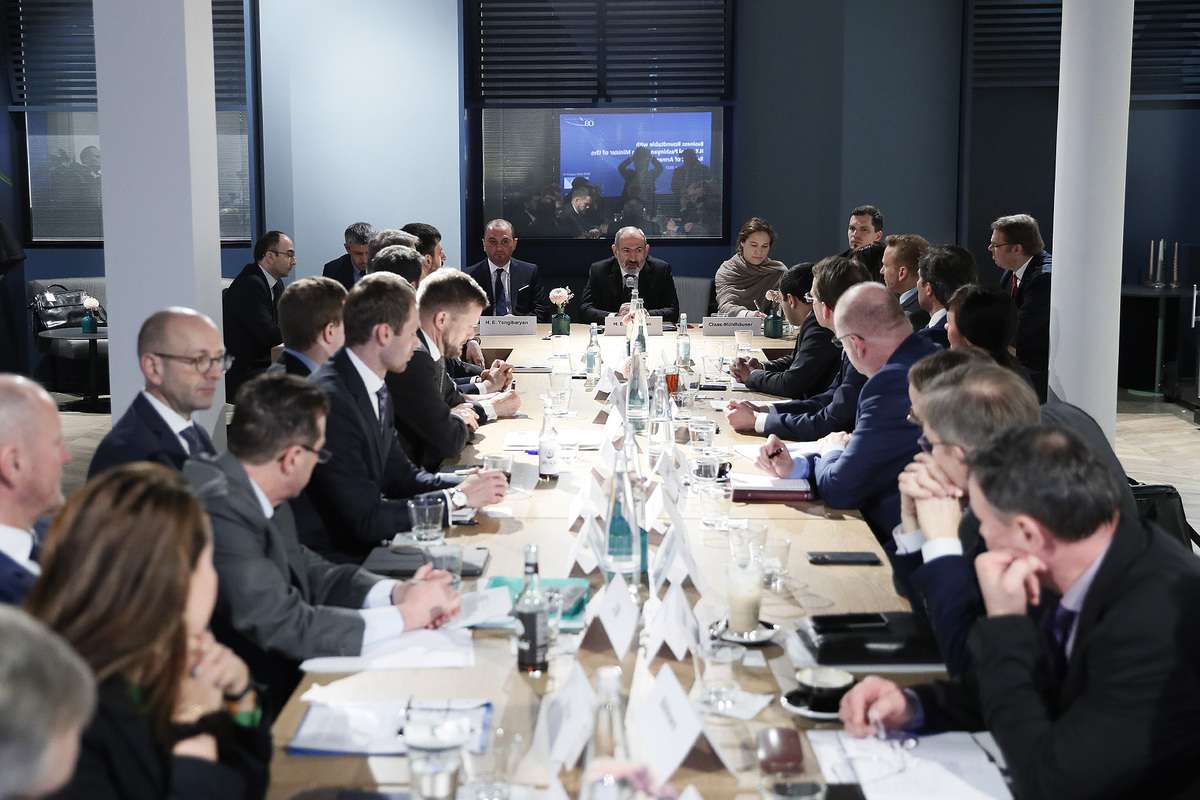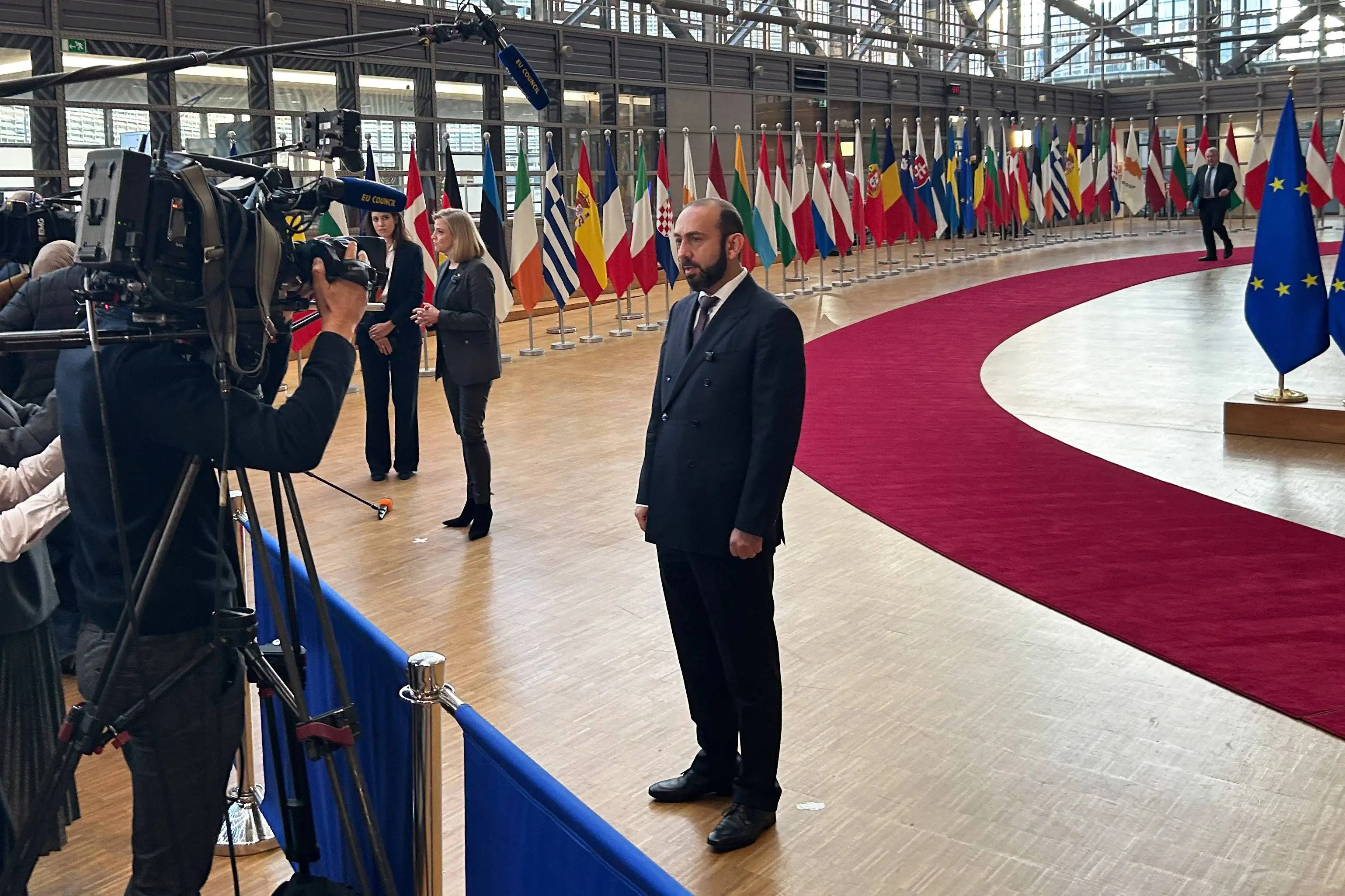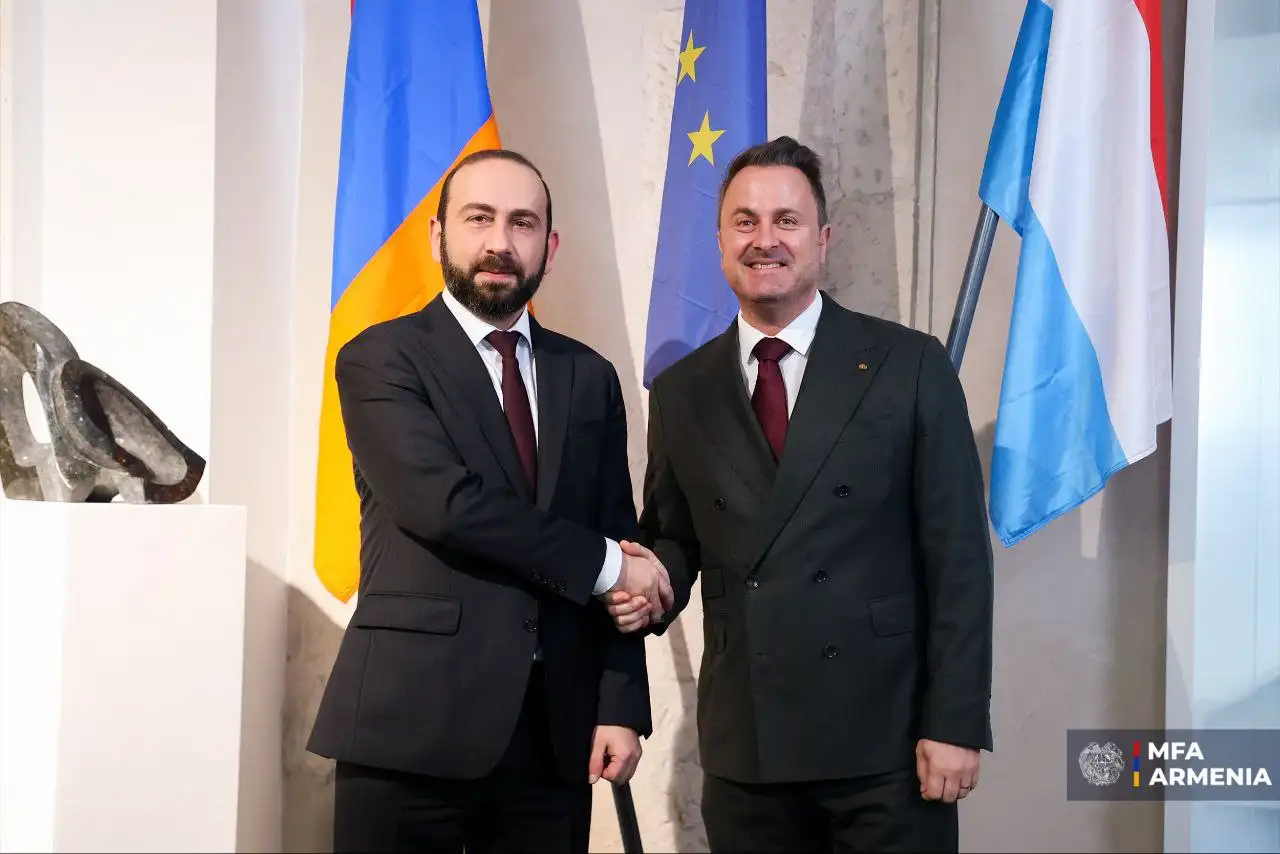Prime Minister Nikol Pashinyan, as part of his working visit to the Federal Republic of Germany, met with representatives of the Eastern Commission of the GDR and leading German companies. The meeting took place at SAP Data Space Berlin, a well-known business management and information technology company also operating in Armenia. Representatives of GDR state bodies and private organizations in agribusiness, digital technologies, pharmaceuticals, energy, aviation, and other sectors participated in the discussion.
Welcoming the attendees, the RA Prime Minister emphasized the importance of the meeting in this format from the point of view of developing and deepening Armenian-German trade and economic cooperation. Nikol Pashinyan referred to the financial situation of Armenia, talking about the current trends and indicators. The Prime Minister noted that 12.5 percent economic growth was recorded in 2022, 156,000 new jobs were created since 2018, and state budget revenues increased by $1.8 billion.
In the international index of economic freedom, Armenia ranks 11th; after the Velvet Revolution, the monopoly was abolished in Armenia, now reforms are being implemented in the economic sphere, in particular, in the areas of modernization of agriculture, the introduction of modern technologies, improvement of infrastructure, energy, high technologies, and several other directions. Armenia's economic growth rate last year was one of the best in the Eurasian region, and the current year is expected to provide at least 7 percent economic growth. However, the existing potential creates opportunities for higher growth. According to the Prime Minister, the rating of Armenia by international authoritative rating organizations has moved from stable to positive, indicating an improvement in the economic environment.
Nikol Pashinyan presented the RA government's steps toward improving tax and customs administration and the business environment. The Prime Minister noted that the RA government is interested in expanding the involvement of German and generally European companies in Armenia, adding that large-scale projects in road construction, infrastructure improvement, and several other directions are being implemented in the country, where there are significant potential and opportunities for cooperation.
Next, the Prime Minister answered the questions of the company representatives regarding the implementation of investment programs in energy, agriculture, industry, finance, infrastructure, and other sectors.




















